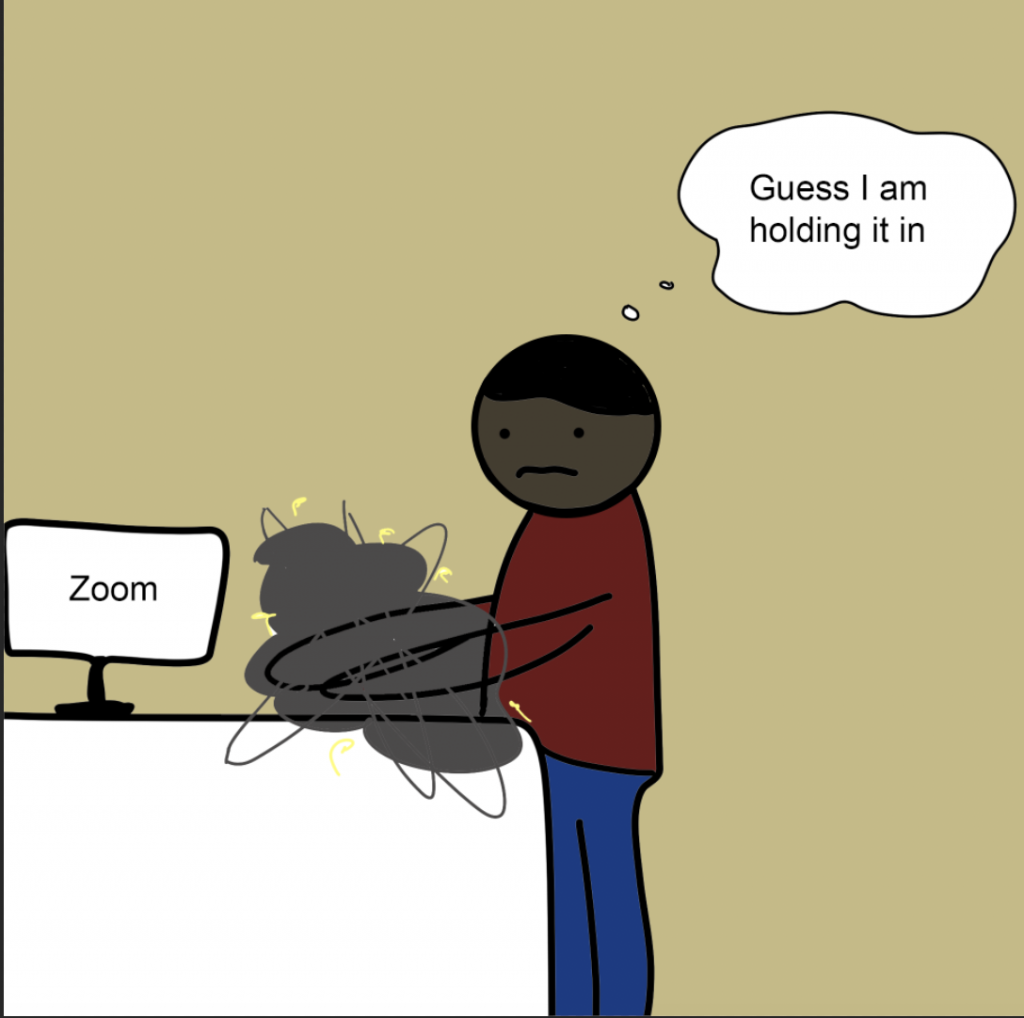
ILLUSTRATION BY LEANE CHE
Shortened passing periods create problematic complications
As part of the new distance learning schedule, passing periods were reduced from eight to five minutes. This reduction places an unreasonable time restraint on both students and teachers.
It is common for teachers to hold students back after class to address instructions or content not previously mentioned. This itself takes up a considerable amount of the passing period. As a result, this leaves little to no time for teachers and students to prepare for their next class. In addition, many teachers attempt to utilize their limited instructional time to its fullest extent. In order to do so, teachers take attendance immediately after class begins, forcing students to join the class a minute or two prior to when it starts. This leads to some students being marked tardy when they arrived just on time. Throughout the course of the school year, these ludicrous tardies will tally up into consequences such as a referral to the student employee welfare.
Classes are 75 minutes long, and only having five minutes in between is absurd. There is not enough time for students and teachers to use the restroom, rest their eyes, stretch, or prepare for their next class. Generally, it takes a couple of minutes to clean up one’s workspace and prepare for the upcoming period. Additionally, several classes that require more time to tidy up, such as ceramics, have not been accounted for. Furthermore, in many households, bathrooms are shared among the family. Due to siblings usually having the same bell schedule, the likelihood of someone already occupying the bathroom is high. Five minutes does not allow one to use the restroom without panicking about whether they would make it back in time for class or not.
Although there is supposed to be a 15 minute intervention for teachers to address students’ questions, it is not enforced by the district. Instead, it is left up to the discretion of teachers, which results in a lack of consistency. Consequently, most teachers have chosen to use the intervention period to continue teaching. Simply suggesting an intervention period without mandating it is completely trivial. While teachers could abide by it, it is illogical to expect teachers to not use all their time teaching, especially since extended home learning is available.
Since school now operates online, it is assumed that five minutes is plenty, and lengthening passing periods would be too difficult for the school to adjust. While it may cause a slight inconvenience, increasing passing periods by three minutes is relatively not a large change. Alhambra High School has already adjusted its bell schedule to accommodate the eight minute passing periods. However, SGHS’s curriculum council agreed to consider lengthening passing periods at the end of the quarter. This poor display of initiative represents how the administration refuses to acknowledge how five minutes is an insufficient amount of time.
The administration must lengthen passing periods back to the original eight minutes. However, since implementing changes was dismissed until the end of the quarter, the administration at the very least needs to revamp the tardy system so students are allowed to have excused tardies. Teachers can privately type out the reason for the tardy in the Zoom chat and the student can screenshot it and send it to their teacher. This will not increase screen time and will appropriately lessen the consequences for students.